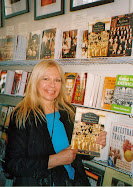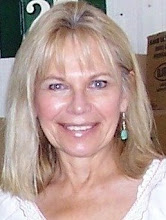In the chronicles of the Teutonic Knights, Salseniken or Saletzniken, town and estates on the Solcza River (tributary of the Mereczanka), Wilno district, in the 5th police precinct and the 7th district court, Soleczniki gmina, along the highway from Wilno to Lida, at 42½ wiorsts from Wilno and 46¼ wiorsts from Lida, has 520 inhabitants.
In the year 1866, there were 31 houses here, 459 inhabitants (9 Orthodox, 316 Catholic, and 134 Jews). The folwark in that year had 35 inhabitants (30 Catholics and 5 Evangelical Protestants); a glass-works, a mill on the Solcza, and a distillery. It possesses a wooden Catholic parish church, a Jewish house of prayer, a Protestant chapel in the churchyard burial ground, and a postal station.
The population of the town, except for the rural peasants of Soleczniki Wielkie, [are] the pastor of the church service, the caretaker and keepers of the mail, the police guard, several classes of Jewish families, [those] working at the tavern-keepers’ trade, poor handcrafters and small shopkeepers, and residents of inns and of ten cottages built on landlords' property.
Catholic church dedicated to St. Peter the Apostle, established in the 14th century, endowed by Jan Hlebowicz in the 16th century (according to the rubrics established in the year 1523 by Jan Chodkiewicz), enlarged by Alfons Lack, chamberlain of Wilno, in 1622; today well maintained, the endeavor of the local pastor by contributions from parishioners. Catholic parish, Raduń deanery, has 4,104 faithful. Branch in Soleczniki Mały, chapel in Montwiłowszczyzna.
The estates have 291 desiatyns of cultivated land and 2,730 desiatyns forest. Formerly the property of Hlebowicz, in the 16th century [they] passed to Chodkiewicz, in whose possession they remained to the year 1824; today they are the property of Wagner.
(Słownik, v. XI, p. 49)
Subscribe to:
Post Comments (Atom)










"on landlord's property" is the correct option at the end of the third paragraph. "Dziedzic" = noble landowner.
ReplyDeleteDziekuje bardzo! I appreciate your clarification and will make that change in the text.
ReplyDeleteCongratulations on MyHeritage.com Top 100 Recognition!
ReplyDeleteVisiting all 100 takes some time. Thanks for what you do!
Bill ;-)
http://drbilltellsancestorstories.blogspot.com/
Author of "Back to the Homeplace"
and "13 Ways to Tell Your Ancestor Stories"
Thanks, Bill! I was surprised and thrilled to discover my blog on the Top 100 list! It's going to be fun exploring them all.
ReplyDeleteThanks for your wonderful blog!
ReplyDeleteI would like to add that all these surnames you pointed out above are of Belarusian origin. The matter is all these settlements (Beniakoni, Voranava etc.) are situated in the North-West Belarusian linguistic area. Local population have Polish identity, visit Roman-Catholic churches but.... speak Belarusian, live in Belarusian huts and eat Belarusian national dishes :-).
A question arises, however, as to whether we can regard local population as Poles. The majority of "western Belarusians" living there do not regard themselves as Belarusians, but use Belarusian talks and traditional culture.Don't you think it's a useless theoretical question?